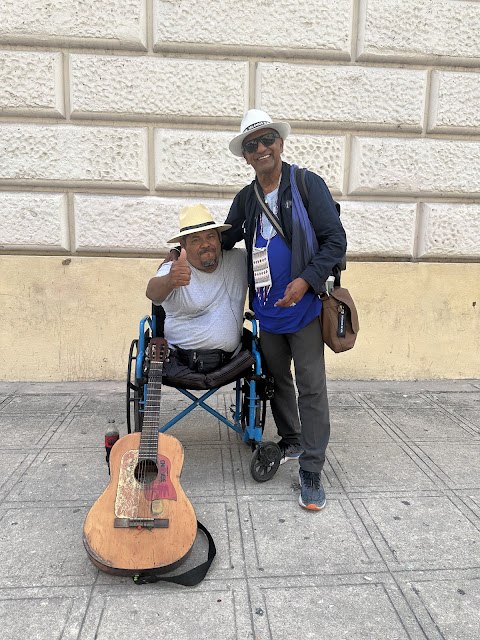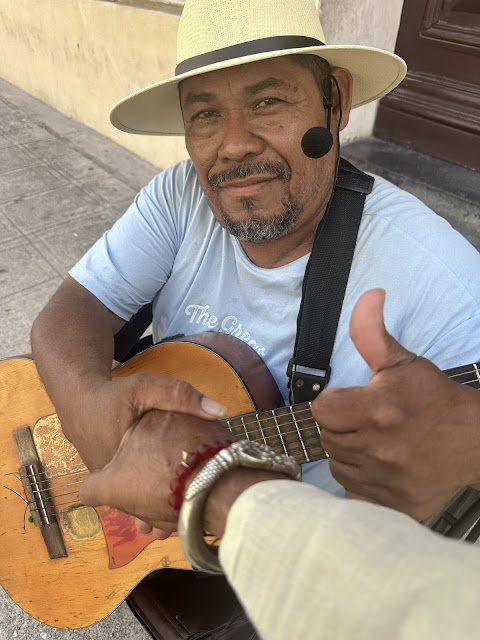Fernando Pessoa, the great Portuguese writer well known for his personal insecurities, once wrote: “If one of the faces that I pass daily on the streets disappear, I feel sad, yet they mean nothing to me, other than being a symbol of all life.”
For me, a great pleasure is being able to recognize faces in faraway places. Whether entering a hotel, a restaurant, or a common space, nothing gives me greater joy than greeting the receptionist by name at the DoubleTree in Kuala Lumpur (12 time zones away from my usual residence), the AVIS rent-a-car counter at Omaha Airport, or the waitress with the sonorous name Ochun at La Burrito Habanera along the Rampa across from the Riviera cinema in La Habana. I also enjoy finding familiar faces along the streets of Palermo in Buenos Aires.
Felix, the legless crooner who sits in front of the now-closed Teatro Contreras Peon, where the first Congress of Feminists was held in 1916, is one such person in Mérida, Yucatán, Mexico. Each time I pass him, he calls out "Dear Brother" and continues crooning. This morning was no different. I usually put a small coin in the hat he has in front of his wheelchair. As I was leaving, he called me back and said, "Dear Brother, this bracelet of mine I will give to you so that when you are far away, you will remember me." I was deeply touched by this gesture. It came at the right time, as these things happen in the symbolism of life.
I am going to Miami from here and plan to spend the next three weeks working with the indigenous people of Florida. I was not looking forward to the narrow-minded polemic discourse taking shape in that country. With just one simple gesture, Felix changed all that. Why am I complaining, flying around the world, dining on the best cuisine, and chatting with intellectual Iranian and other friends about poetry and songs? I wrote to my indigenous friends: I am looking forward to returning to you next week.
Gracias, mi hermano Felix.






